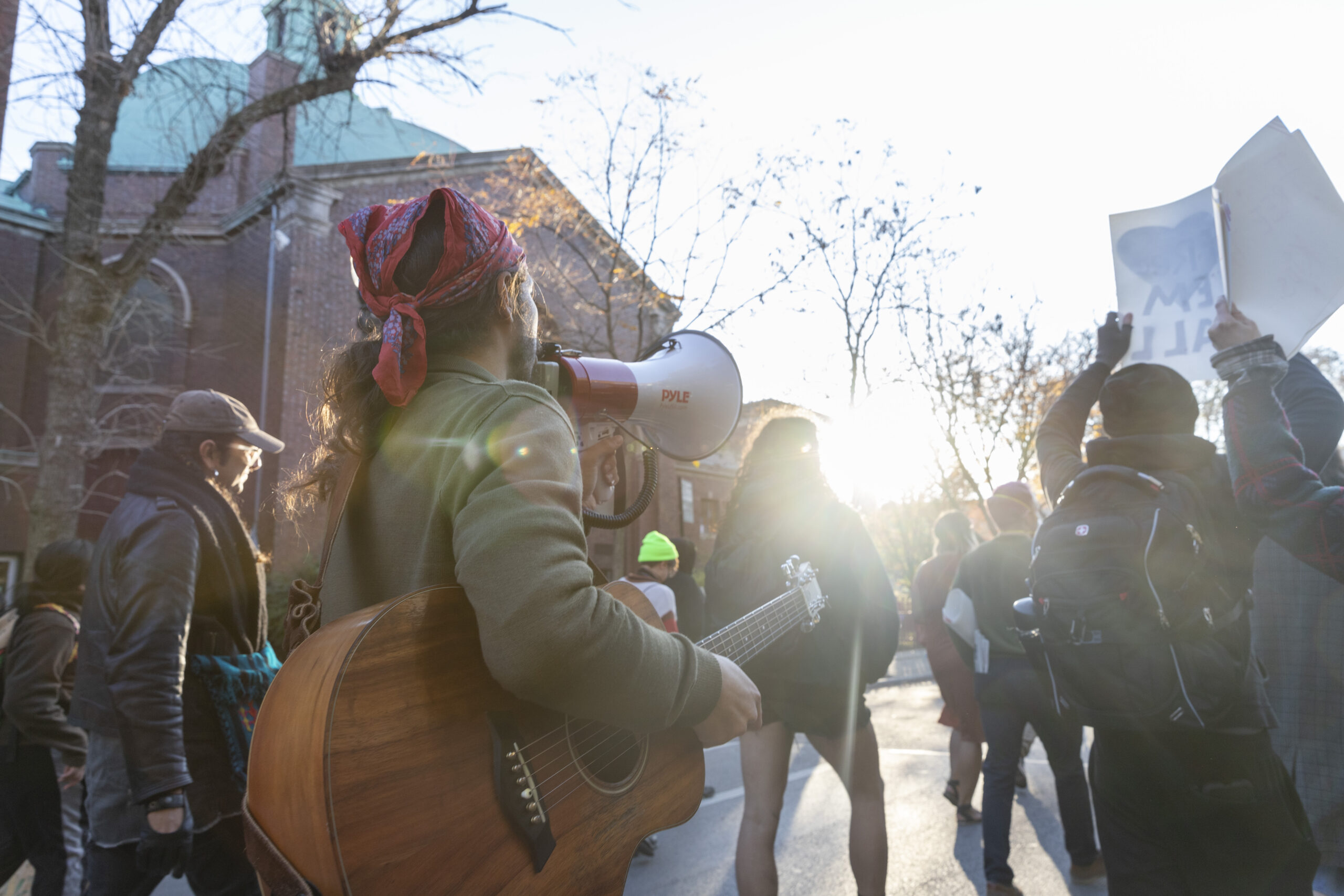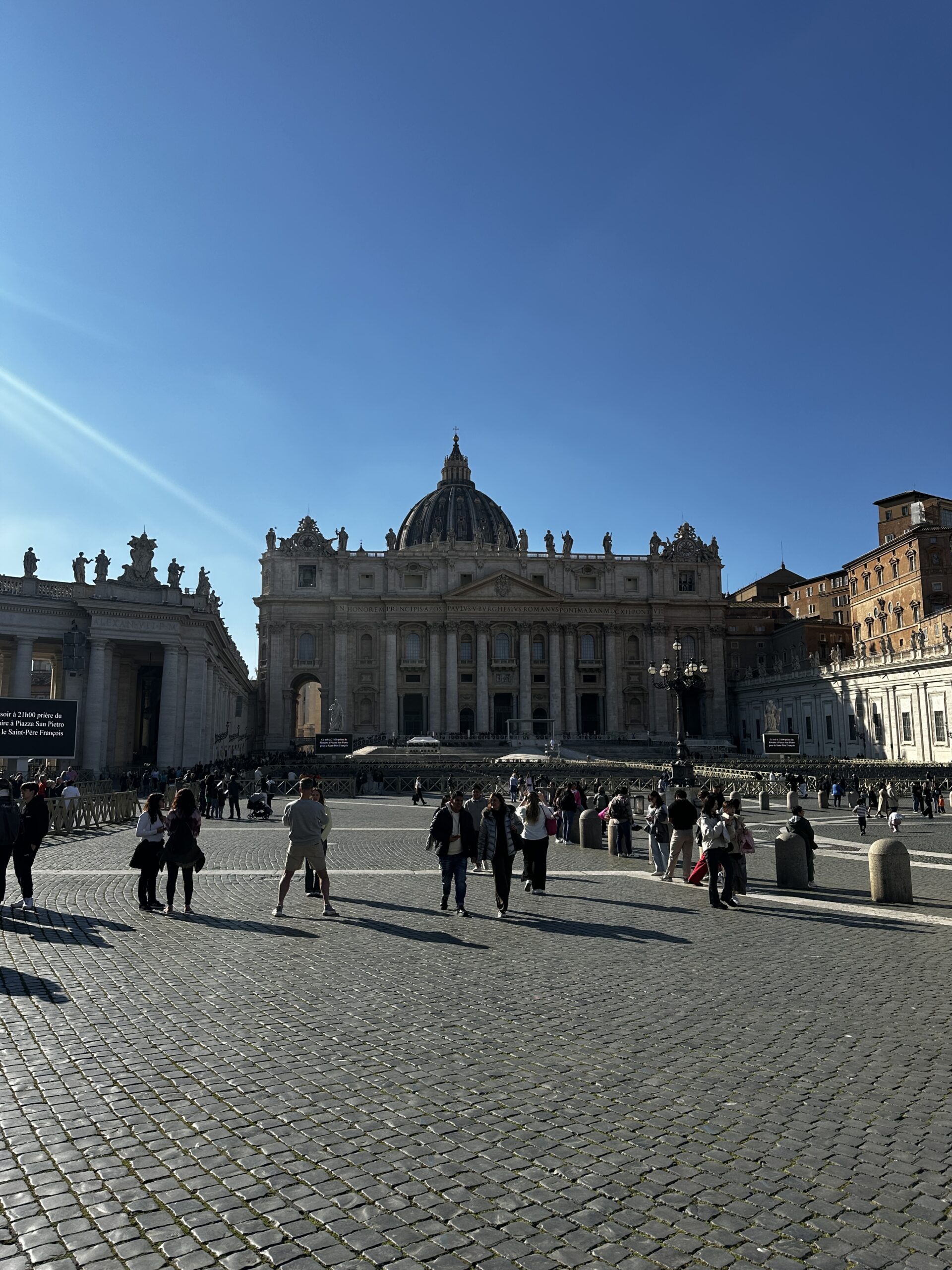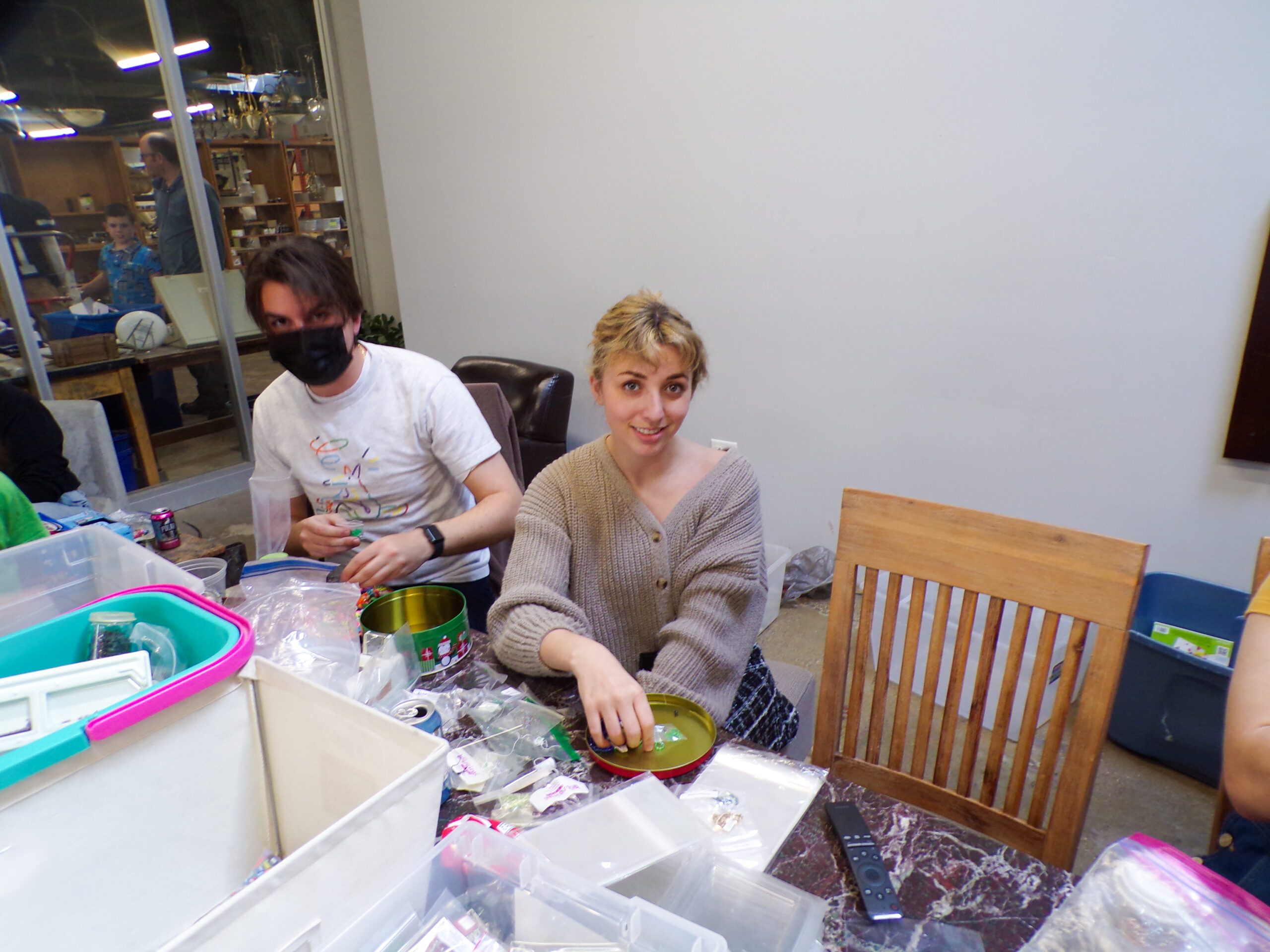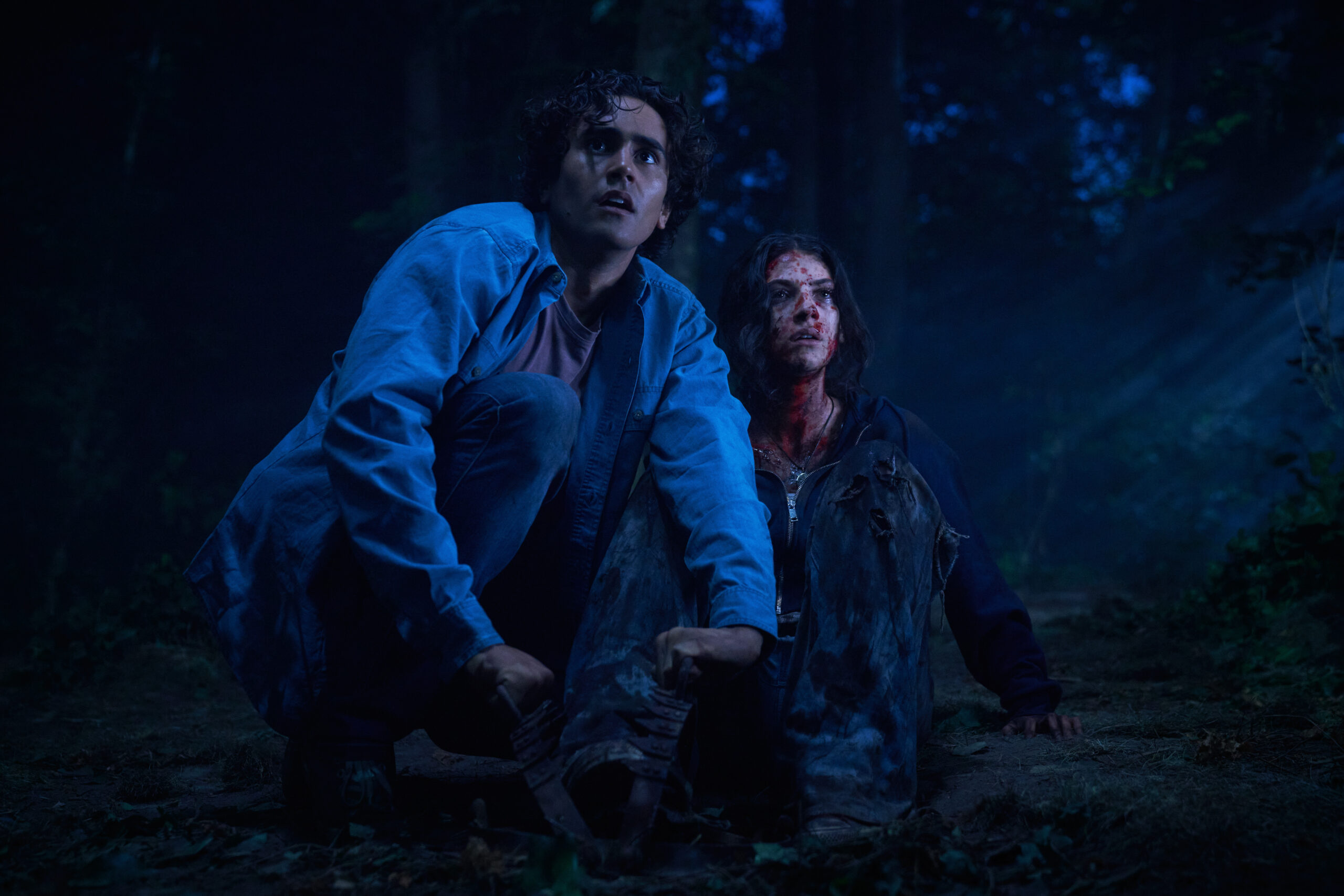Community members came together in Rogers Park on Oct. 29 for a protest aiming against alleged “youth detention facilities.”
Community members and activists came together in Rogers Park on Oct. 29 for the latest in a series of protests aiming to close alleged “youth detention facilities.”
The protest started with a poster-making session at the PO Box Collective, about half a mile northwest of Loyola’s Lake Shore Campus (LSC). Protesters then marched to various points in the area of the collective, including 49th Ward Alderwoman Maria Hadden’s office and two of the facilities the group hopes to have closed.
The facilities, as the protesters call them, are run by Heartland Human Care Services, a division of the Heartland Alliance.
The Heartland Alliance is a Chicago-based anti-poverty organization which strives to “advance human rights and champion human dignity by providing services and promoting solutions to achieve a more just global society,” according to the organization’s website.
Specifically referring to the facilities, Heartland Alliance said the centers are “shelters to care for migrant children who arrive at the border unaccompanied,” according to their website.
Heartland Alliance did not respond to requests for comment from The Phoenix.
Protesters, however, have argued for years that the facilities are inhumane. Community members held demonstrations around the city in previous years, including attempting to “ruin” Heartland Alliance’s annual fundraising gala in the Chicago Loop in 2018, The Phoenix previously reported.
Additionally, a 2018 article by ProPublica detailed numerous reports of poor conditions and bad care provided within the facilities.
“After recent media reports detailed several children’s serious allegations of mistreatment, including claims that staff injected a young boy with a sedative, local, state and federal authorities began asking questions of an agency unaccustomed to public criticism,” the article says.
Protesters handed out an informational leaflet that elaborated on their concerns.
It read, “thousands of children, including more than 2,500 children separated under Trump, are held for ransom while the government extracts information on their family, extracts profit from them and threatens deportation.”
Throughout the march, protesters held signs with various slogans including “free the kids” and “Heartland Alliance jails kids for profit.” Some protesters carried banners with information and resources, some intended to inform passersby and others intended to provide resources to children within the locations they stopped outside during the march. One banner gave the phone number for a “free lawyer [who] wants to help” in both English and Spanish.
While the protest was mainly intended to raise awareness for the facilities, some emphasis was placed on pressuring elected officials to take action against the locations. One such sign listed the phone number for U.S. Congresswoman Jan Schakowsky, the representative for Illinois’ 9th District, which includes the facilities the protesters marched to on Saturday at 1628 W. Morse Ave and 1620 W. Chase Ave.
The sign urged people to “Call Jan Schakowsky and ask her why there are youth jails in Rogers Park.”
Protesters also stopped at Alderwoman Hadden’s ward office, just a few blocks from both of the facilities visited on the march. They taped signs to the windows and wrote chalk messages on the sidewalk outside.
Hadden’s office hasn’t discussed the facilities publicly often, though the alderwoman put out a statement with State Rep. Kelly Cassidy, who represents Illinois’ 14th District in April 2020. The statement addressed community concerns over COVID-19 within the facilities in Rogers Park.
“We have heard the concerns of residents who have inquired about the health and safety of the migrant children in the care of Heartland Human Services,” Hadden wrote. “We too care deeply about the health and well-being of the children our federal government detains and the care they receive while in our communities.”
Hadden further said she and State Rep. Kelly Cassidy, who represents Illinois’ 14th District, had reached out to the Heartland Alliance over concerns raised by the community members.
“We sent a letter to the Executive Director requesting that any children still in their care be released to families as soon as possible and naming our concerns related to the COVID pandemic,” their statement said.
Speaking specifically about Saturday’s protest, Hadden said she understood the protesters’ concerns, but that there was little she could do in her official capacity.
“It’s complex, but it’s not my area of expertise, and it’s not my area of governance in local government,” Hadden said.
Rozalinda Borcila, one of the protesters, explained she and other organizers were hesitant to put a lot of effort into reaching out to elected officials.
“A lot of the community groups I’ve worked with haven’t necessarily had contact with elected officials,” Borcila said. “We don’t necessarily think that they’re going to be truthful or sincere, unless they want to engage in actually super public debate about this topic.”
While she has experienced what she believes to be lies and deceit from official sources about the facilities, Borcila said she had been able to learn from former employees and children who were held in the facilities.
“There have been a series of different sources,” Borcila said. “Some have been former staff of Heartland who decided to speak out more or less publicly.”
The decision is an especially difficult one for families of children in the facilities, Borcila said.
Describing some of the concerns families have had about speaking out, Borcila said they “expressed all kinds of confusion and pain and fear about both understanding what had happened and also the impossibility of speaking publicly, oftentimes, because once children are released form these facilities, they remain under deportation proceedings for many years.”
As the protesters left the locations of the facilities, they chanted, “We’ll be back,” trying to remind the children inside that they weren’t forgetting about them.
Protestor Maximo Sanchez explained the gravity of the situation and why he felt so compelled to help children with whom he had no direct connection.
“They weren’t just displaced from a few blocks or a neighborhood, they were displaced from an entire region, and they’ve had to travel thousands and thousands of miles in dangerous conditions,” Sanchez said. “To end up detained here is absolutely ludicrous to us.”
Recently, several Heartland Health Care Centers have renamed to Tapestry 360 Health in an attempt to dissociate themselves from their sister organization Heartland Alliance’s allegations of abuse, according to Block Club Chicago. Heartland Health Centers became independent of the Heartland Alliance in 2003.
This story was written by Holden Green
Featured image by Holden Green | The Phoenix
-

Holden Green is a fourth-year majoring in Multimedia Journalism. He is the current Managing Editor and former Photo Editor at The Phoenix. Hailing from the Chicago suburb of River Forest, Holden grew up in the city and loves documenting the unique moments in everyday life.
View all posts











